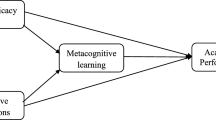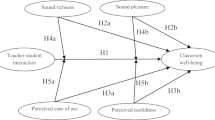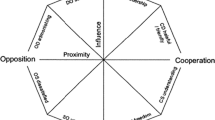Abstract
This study investigated the characteristics of effective English teachers as perceived by 169 teachers and 339 students in high school in Korea, with a self-report questionnaire consisting of three categories: English proficiency, pedagogical knowledge, and socio-affective skills. Overall, the teachers perceived significantly different characteristics than the students in all three categories with the teachers ranking English proficiency the highest in contrast to the students who ranked pedagogical knowledge the highest. The student subgroups also held different perceptions of effective teaching. High achieving students reported different characteristics than low achieving students in pedagogical knowledge and socio-affective skills, whereas the male students demonstrated different characteristics from the female students in socio-affective skills. The findings have implications for knowledge-based teacher education for current and prospective English teachers.
Similar content being viewed by others
References
Bandura, A. (1986).Social foundations of thought and action: A social cognitive theory. Englewood Cliffs, NJ: Prentice-Hall.
Bernhardt, E., & Jammadou, J. (1987). A decade of research in foreign language teacher education.Modern Language Journal, 71, 289–99.
Brosh, H. (1996). Perceived characteristics of the effective language teacher.Foreign Language Annals, 29, 125–138.
Buchmann, M. (1984). The priority of knowledge and understanding in teaching. In L. Katz & J. Raths (Eds.),Advances in teacher education Vol. 1 (pp. 29–50). Norwood, NJ: Ablex.
Check, J. (1986). Positive traits of the effective teacher- Negative traits of the ineffective one.Education, 106, 326–334.
Demmon-Berger, D. (1986).Effective teaching: Observations from research. Arlington, VA: American Association of School Administrators. (ERIC Eric Document Reproduction Service No. 274 087)
Devellis, R. (1991). Scale development: Theory and applications. Newbury Park, CA: SAGE Publications.
Dittrich, J., Shrum, J., & Stewart, C. (2001). Pedagogical knowledge: The perspective of classroom teachers. In R. Terry (Ed.),Agents of change in a changing age (pp. 47- 78). Lincolnwood, IL: National Textbook Company.
Dörnyei, Z. (1998). Motivation in second and foreign language learning.Language Teaching, 31, 117–135.
Freeman, D., & Johnson, K. (1998). Reconceptualizing the knowledge-base of language teacher education.TESOL Quarterly, 32, 397–417.
Horwitz, E. (1998). The beliefs about language learning of beginning university foreign language students.Modern Language Journal, 72, 282–294.
Horwitz, E., Bresslau, B., Dryden, M., McLendon, M., & Yu, J. (1997). A graduate course focusing on the second language learner.Modern Language journal, 81, 518–526.
Koutsoulis, M. (2003).The characteristics of the effective teacher in Cyprus public high school: The students’ perspective. Arlington, VA: American Association of School Administrators. (ERIC Eric Document Reproduction Service No. 478 761)
Krashen, S. (1985).The input hypothesis. London: Longman.
Lafayette, R. (1993). Subject-matter content: What every foreign language teacher needs to know. In G. Guntermann (Ed.),Developing language teachers for a changing world (pp. 125–157). Lincolnwood, IL: National Textbook Company.
Lang, H., McKee, B., & Conner, K. (1993). Characteristics of effective teachers: A descriptive study of the perceptions of faculty and deaf college students.American Annals of the Deaf, 138, 252–259.
Long, M. (1996). The role of the linguistic environment in second language acquisition. In W. Ritchie & T. Bhatia (Eds.),Handbook of second language acquisition. San Diego, CA: Academic Press.
Lowman, J. (1996). Characteristics of exemplary teachers.New Directions for Teaching and Learning, 65, 33–40.
MacIntyre, P., Dőrnyei, Z., Clément, R., & Noels, K. (1998). Conceptualizing willingness to communicate in a L2: A situational model of L2 confidence and affiliation.Modern Language Journal, 82, 545–562.
McCombs, B., & Lauer, P. (1997). Development and validation of the learner-centered battery: Self-assessment tools for teacher reflection and professional development.The Professional Educator, 20, 1–21.
Minor, L., Onwuegbuzie, A., & Witcher, A. (2002). Preservice teachers’ educational beliefs and their perceptions of characteristics of effective teachers.The Journal of Educational Research, 96, 116–127.
Mollica, A., & Nuessel, F. (1997). The good language learner and the good language teacher: A review of the literature.Mosaic, 4, 1–16.
O’Malley, M., & Chamot, A. U. (1990). Learning strategies in second language acquisition. Cambridge: Cambridge University Press.
Oxford, R. (1990). Language learning strategies: What every teacher should know. New York, NJ: Newbury House.
Rubin, J. (1975). What the good language learner can teach us.TESOL Quarterly, 9, 41–50.
Schulz, R. (2000). Foreign language teacher development: MLJ perspectives-1916–1999.Modern Language Journal, 84, 495–522.
Shulman, L. (1986). Those who understand: Knowledge growth in teaching.Educational Researcher, 15, 4–14.
Vélez-Rendón, G. (2002). Second language teacher education: A review of the literature.Foreign Language Annals, 35, 457–467.
Witcher, A., Onwuegbuzie, A., & Minor, L. (2001). Characteristics of effective teachers: Perceptions of preservice teachers.Research in the Schools, 8, 45–57.
Author information
Authors and Affiliations
Corresponding author
Rights and permissions
About this article
Cite this article
Park, GP., Lee, HW. The characteristics of effective english teachers as perceived by high school teachers and students in Korea. Asia Pacific Educ. Rev. 7, 236–248 (2006). https://doi.org/10.1007/BF03031547
Received:
Revised:
Accepted:
Issue Date:
DOI: https://doi.org/10.1007/BF03031547




